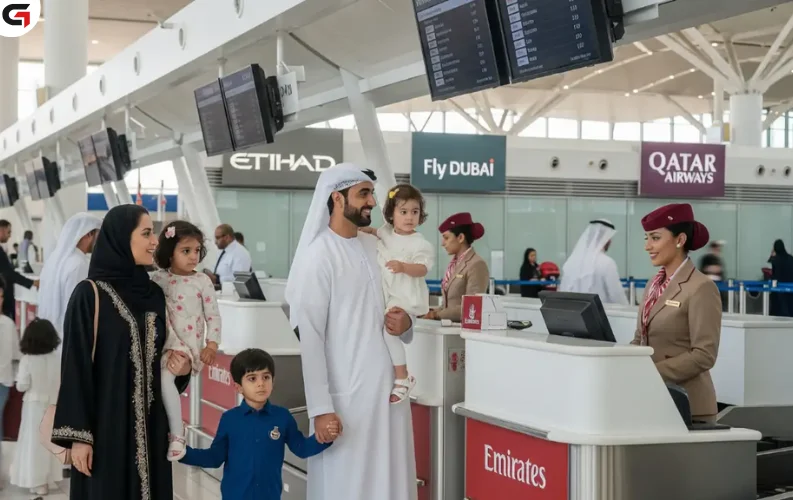Dubai – As geopolitical tensions in the Middle East escalate, particularly between Israel and Iran, UAE residents are reevaluating their summer travel plans. Many are turning their attention to Southeast Asian destinations, while budget travellers are increasingly postponing trips or adopting a cautious “wait-and-watch” strategy, say travel agents.
According to Muhammed Rishal, Executive Director at Arooha Leisure Arooha Travels, travellers are waiting to see how the situation unfolds over the next two weeks, aligning with school summer holidays. “That said, people who have planned bookings are going irrespective of their plans," he noted. However, uncertainty persists in the new booking market, especially for regions affected by airspace restrictions and potential delays.
“There are zero new bookings and many cancellations for areas such as CIS nations, including Armenia and Kazakhstan,” added Rishal. While flights to countries like Georgia continue, the extended travel time, now five hours instead of three, and concerns over return safety are affecting travel confidence.
Ongoing Conflict Reshapes Travel Preferences
Now entering its seventh day, the Israel-Iran conflict shows no sign of slowing. Despite calls for diplomacy, including US President Donald Trump’s announcement of a two-week window before taking further action and talks underway in Geneva, travel sentiments remain cautious.
In response, many UAE travellers have cancelled trips to Europe and the US, particularly those worried about potential air travel disruptions due to Middle East flight paths.
Southeast Asia Holds Strong Amid Uncertainty
Destinations like Thailand, Malaysia, Singapore, and Vietnam continue to experience steady demand. Raheesh Babu, COO at Musafir.com, confirmed the trend: “Even with longer flights, customers are choosing places like Bangkok, Krabi, Kuala Lumpur, and Singapore. These remain the top picks.”
He added that while some interest in Eastern European cities like Sarajevo and Sochi remains, many travellers fear getting stuck due to regional instability.
According to projections, Middle Eastern arrivals to Southeast Asia are expected to rise to 1.2 million in 2025, up from 727,000 in 2019, with the UAE and Saudi Arabia among the top source markets. UAE airlines also maintain strong routes to these destinations, supporting demand.
Flight Times and Costs on the Rise
Due to airspace closures, flight durations and costs are increasing. A typical three-hour flight to Georgia now takes up to five hours, pushing airfares higher due to increased fuel consumption.
“Ticket prices are rising with the onset of summer and the added travel time,” said Rishal. The impact is particularly hard on budget travellers, many of whom are reconsidering their plans or cancelling entirely.
“Some are choosing not to go at all,” Babu noted. “They prefer visa-free or short-duration trips but are being hit by rising costs and uncertainty.”
Visa Crunch Pushes Travellers to New Regions
Securing Schengen visas for popular European destinations remains a major hurdle, with slots for July and August extremely limited. Appointments are mostly opening post-September, deterring new bookings.
As a result, UAE travellers are looking elsewhere, particularly towards:
-
The Baltics – Latvia, Lithuania, Estonia (visa appointments for August available)
-
Africa – South Africa gaining traction, with group trips being planned, including one with 40 people on July 26, confirmed Rishal.
Diaspora Travel Remains Steady
Despite shifting travel trends, diaspora travel, residents returning to their home countries, remains strong. “No cancellations for these trips have occurred so far,” said Babu. Indian schools are set to close by July 4, and many residents have already secured tickets.
“There is high demand, just shifted,” Babu observed. “Travellers are actively checking flight status, but the desire to travel is still there.”
As summer begins, UAE residents are demonstrating flexibility in their travel decisions. While Southeast Asia appears to offer a reliable escape, the dynamic global environment continues to shape how, and where, UAE residents vacation.




















